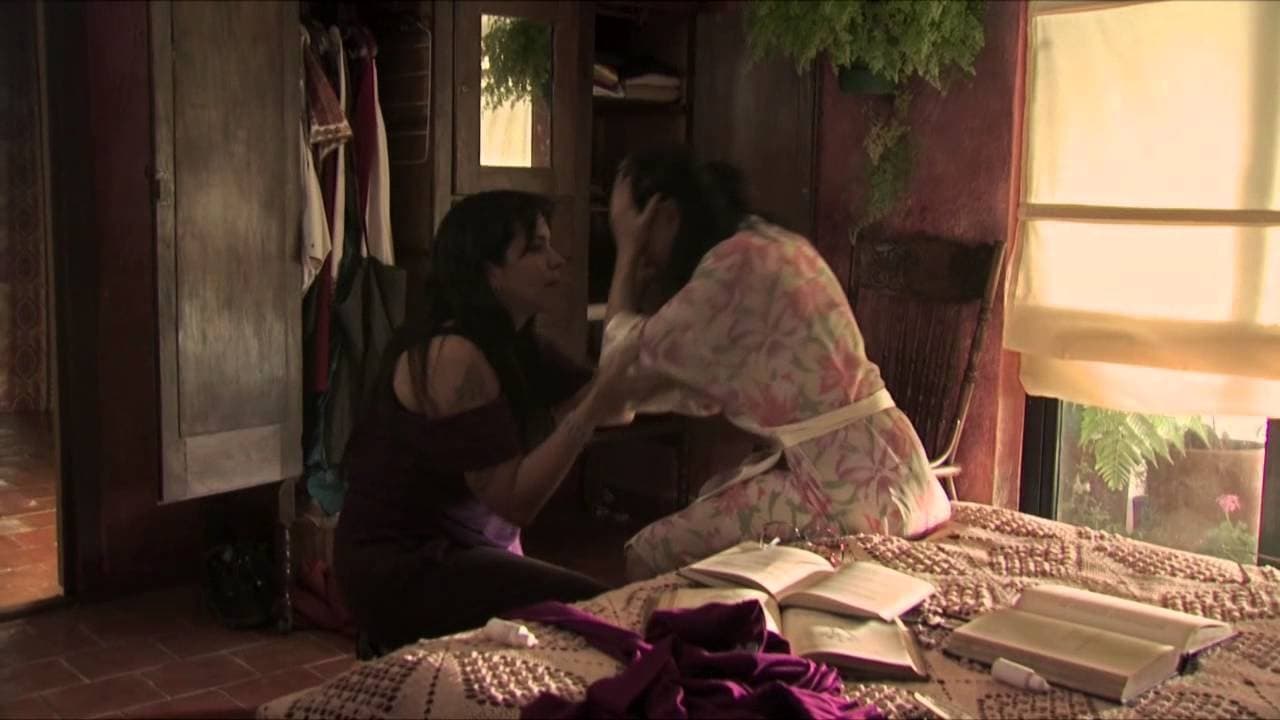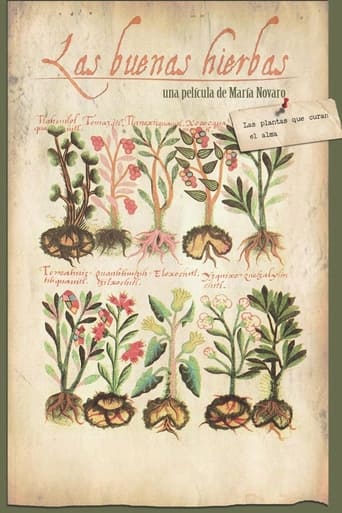

Las Buenas Hierbas directed by Maria Novaro repeats a theme becoming somewhat commonplace in contemporary cinema: the relationship between mother and daughter, especially when daughtering has to become mothering. This film is untidy, certainly, but also lyrical and persuasive, with competent and convincing acting in the principal roles. The director has structured the script into chapters, with pauses between characterized by semi-still, semi-animated images from ancient herbal dictionaries, lending a historical and intellectual air to the story which matches the personality, fast deteriorating, of the mother. Woven into the main plot which describes in a number of both brilliantly scripted and improvised scenes how "young" sufferers from Alzheimers disease tend to fail fast, are several subplots dealing with a neighbor's desperate regret that she was unable to shield her granddaughter, portrayed as a ghostly permanent quinceanera, from murder; the daughter Dalia (beautifully played by Ursula Pruneda)and her casual affair with a very young acquaintance -- which seems irrelevant, except perhaps to emphasize her natural vitality, her lack of scruples despite her interest in the socio-political world around (emphasized also through the critical broadcasts at the independent radio station where she works). One might argue for a tighter script and more stringent editing; but the delicacy and forcefulness of the central characterizations reveal an unfortunate truth that will affect more and more of us -- especially women, especially daughters, as we age.
... View MorePresented at the 2010 Guadalajara Film Festival, "Las buenas hierbas" received a warm reception from the audience (in part, due to the presence of Ofelia Medina in the cast), and a couple of prizes (Best Actress for Úrsula Pruneda) and funding, but it should not be overlooked that it contains considerable shortcomings which affect the overall effect. In the first 33 minutes, María Novaro (who --again-- unwisely edits her own material) builds the story beautifully, without stressing any particular aspect, just letting the images flow, atmosphere and characters grow, until the first plot point turns the audience's attention to herb expert Lala (Medina), who suffers from Alzheimer, and the reaction to it by her daughter Dalia (Pruneda). The next scenes follow the strategy of Dalia, her weird romance with a youngster (who appears out of nowhere as a sort of voyeur, and then disappears as if nothing), the sad (and never fully developed nor explained) subplot dealing with Dalia's neighbor Blanquita (Ana Ofelia Murguía) and the killing of her grand daughter... Every now and then we return to Lala and Dalia, especially in a brilliantly improvised scene, when Dalia tries to dress her mother, while Lala insists on the search for a herb in a book; and to the funny effects that the little details Lala is revealing, have on Dalia... But everything is so unfocused, that it is really a pity. Novaro even included her own son singing on screen a couple of songs (one can deal with the first, but the second is just placed there, out of the blue, in an obnoxious manner); and describes the death of Blanquita's granddaughter in a way one cannot discern what is going on with that poor girl who resembles a "pepenadora" in a long pink dress. Only in the last minutes before the film ends, when Blanquita joins Dalia in taking care of Lala, the movie improves a bit. I think Maria Novaro can easily cut a few minutes from the film, in the middle section, making it tighter and more coherent. Otherwise it is a good effort, but not much more.
... View More